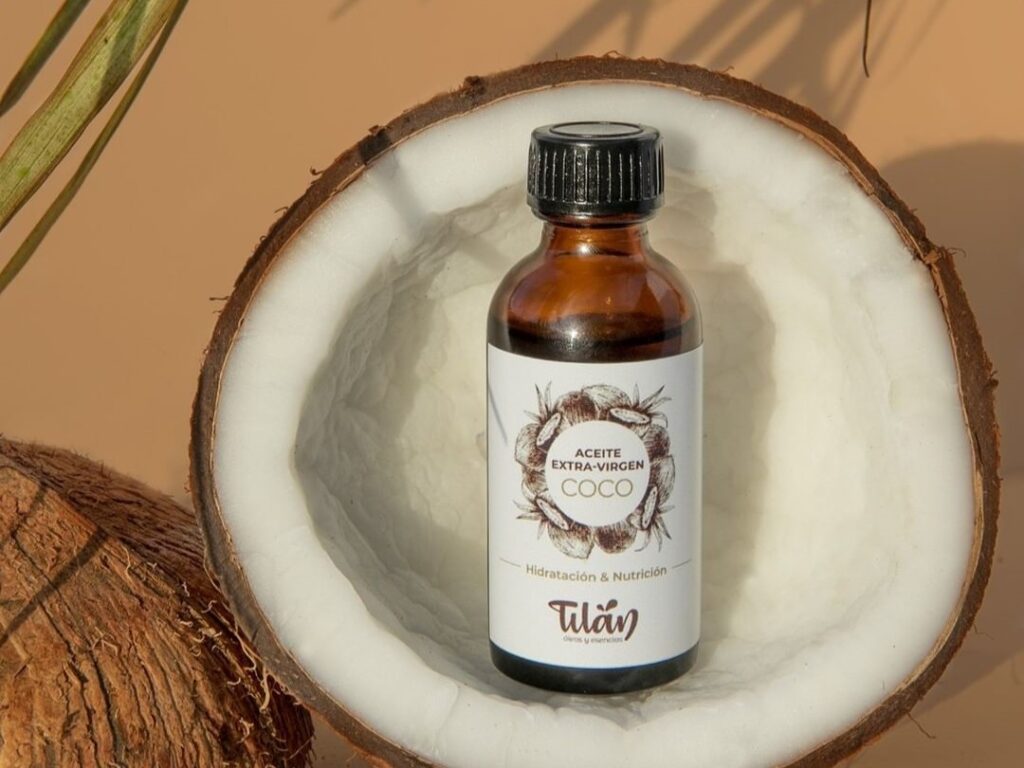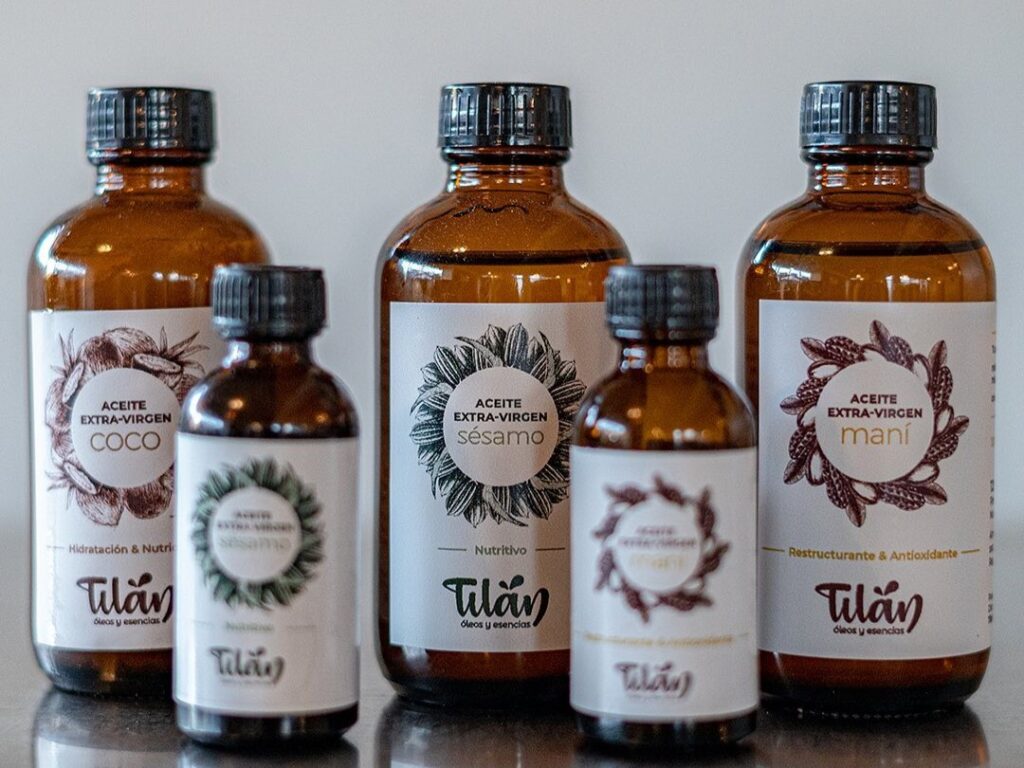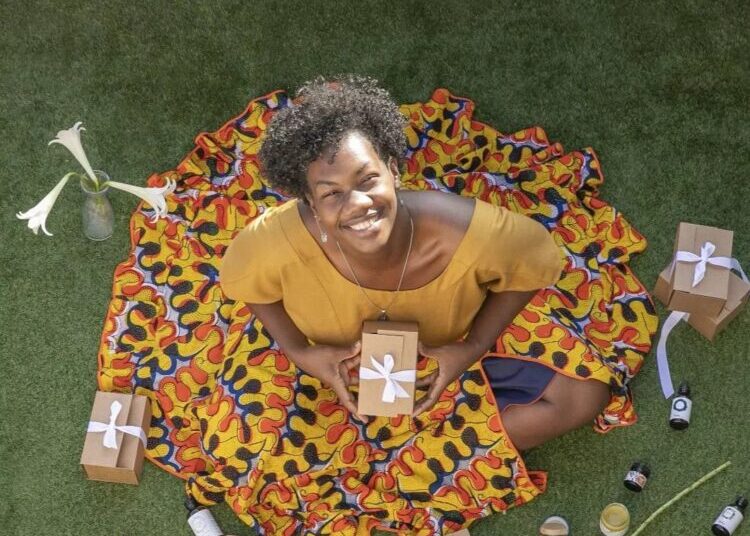Greta Tilán still vividly retains in her memory the smell of coconut that emanated from a charcoal stove, during the first time she produced oil, in the patio of her aunt’s house in Calimete, Matanzas, more than 180 kilometers from Havana.
Almost seven years have passed since she decided to create her own business, even though she was a Philosophy student at the University of Havana. She felt overwhelmed by the multiple jobs she had to do to survive in the capital and she wanted to have more control over her time.
Her inspiration came through a magazine article that included a recipe with coconut oil. She decided to try it and, on the first try, she managed to obtain a product that she later sold through the popular Cuban advertising website, Revolico.
“At that time, ‘Tilán’ did not have a name or a label. It was just me, starting out without having a clear idea of what I was doing, but trying hard to earn my own money,” Greta recounted.
My hands, my investment
After that first experience, Greta realized that there was an opportunity for her, but she lacked the money necessary to start her business.
“I did not receive financial help from anywhere, nor did I have resources to invest. It all started with me working in the field. I knocked down coconuts with my friends, peeled them by hand with a machete and made oil in a cauldron,” she said.
One of her uncles built her a small rustic pressing machine, which made it easy to extract the coconut milk.

“After a few years, I was able to buy my first press, but the real investment was my hands, those of my friends and the selfless collaboration I received,” said Greta.
After graduating from college, she questioned whether everything she had been doing was just a hobby or her true calling.
She opted for her business, although at first her family did not understand her choice to leave a secure job to follow her passion for oils.
“It was a difficult decision because I didn’t know what the future had in store for me. I did what I thought was right. I gave the name to the brand. Tilán is my last name and it honors my father, who was an extraordinary man. The design was a gift from a designer friend. This is how Tilán began to take shape,” she explained.
For Greta, entrepreneurship is not just about following a passion, but about constant learning.
“I wanted to make exceptional coconut oil, so I had to study a lot about it. Additionally, I had to learn about the circular economy, a concept I discovered while integrating bioethics into my business. It was a long and arduous process of study in areas such as economics, the chemistry of oils and cosmetics,” she said.
She found the first educational resources on the Internet to enter the world of oil manufacturing. Later, her talent and perseverance opened the doors to courses, scholarships and training programs abroad, which honed her skills.
“Although the path has been hard and challenging, seeing the results and the positive impact on people has motivated me to keep going,” she confessed.
Venturing with commitment
Since 2022, Tilán is a private venture dedicated to the production of vegetable oils with a circular business model.
It has a small team of eight workers, all versatile and capable of performing multiple roles according to the needs of the moment.
They still don’t have a physical store, so WhatsApp is the platform from which they serve their customers and organize home deliveries.
Tilán markets vegetable oils for cosmetics as well as food.

Among the most requested in the food category is sesame oil, whose popularity has grown with the expansion of Asian food in Cuba. Meanwhile, coconut oil is the cosmetic oil preferred by customers.
“Our goal is that at least 95% of our production is made up of natural ingredients, with 80% of these coming from Cuba. We promote ‘homemade,’ defending the quality of national products, which have a high nutritional value that is often overlooked in the market,” Greta explained.
She believes that there are opportunities for the cosmetics industry in the country if all the resources that are currently overlooked are taken advantage of.
“In Cuba, tons of mangoes are wasted every year, when both the fruits and the fat extracted from the seeds have a high value in the international market. We are looking to rescue those resources through a circular approach, taking advantage of everything that is currently considered waste,” she commented.
“We are working closely with farmers and our goal is to value what they do, which is hard but noble and essential. We want people who hold a bottle of our oil to understand that this product comes from the earth. Our commitment to environmental responsibility and sustainability are fundamental principles for us,” she stressed.
That everything returns
Greta states that her goal is to be among the best vegetable oil producing enterprises in the region and to export its products from Cuba. However, she recognizes that there are several obstacles to overcome to get there.
“The biggest challenges I have as a businesswoman are in the Cuban economic environment. It’s been crazy since 2020 until now, more and more every day. The price of the dollar continues to rise and many of the inputs we import increase in cost. It is extremely suffocating to undertake with the few resources and opportunities we have,” she stated.
She mentioned the deficit of energy, water and the shortage of raw materials as additional challenges.
“There is no supplier that is completely constant and efficient, that never fails. We maintain a portfolio of suppliers that we are always expanding in case of failures, but there are times when they all fail, and others when a certain product is simply not available,” she explained.
Greta has adopted the principles of the circular economy not only because of her environmental commitment, but because where others see waste, she finds opportunities to manufacture her products or collaborate with the value chain of others.
“In an emerging private sector like Cuba, the economic benefit is significant,” she said.
Love for her land
“Tilán is my livelihood. It is not my only project, but it is my only job. It fills me with joy to see how it has grown and maintained until today. It is gratifying to observe the opportunities it has in the national and international market. I would like to go faster. I need it. But during my time as an entrepreneur, I have learned that investment is crucial,” commented Greta.
While she waits for her moment, she has decided to help others. Although she lives in Havana, she returns to her native Calimete with her Azul Emprende project, designed to promote the circular economy and encourage business development in the countryside.

“The lack of opportunities is not only due to the scarcity of resources, but also because people do not know how to take advantage of them. Therefore, the project seeks to provide support and guidance to entrepreneurs so that they can develop and prosper in their communities,” she explained.
Greta Tilán also aspires to build a life project in her country. “Cuba is where I have decided to be, where I want to develop. I wish to take advantage of this virgin market and this wealth of flora,” she said.
Each bottle of Tilán, in addition to vegetable oil, carries the story of effort, perseverance and environmental commitment of this young woman who continues to see her small southern town as the best place in the world.










